第46章
The first letter, from Dudley, at Windsor 'this 9th day of September in the evening,' proves that Blount, early on September 9, the day after Amy's death, went from Leicester, at Windsor, towards Berkshire. He had not long gone when Bowes (a retainer of Leicester, of Forster, or of Amy) brought to Dudley the fatal news.
'By him I do understand that my wife is dead and, as he saith, by a fall from a pair of stairs. Little other understanding can I have from him.' Throughout the correspondence Leicester does not utter one word of sorrow for Amy, as, had the letters been written for exhibition, he would almost certainly have done. The fear of his own danger and disgrace alone inspires him, and he takes every measure to secure a full, free, and minute examination. 'Have no respect to any living person.' A coroner's jury is to be called, the body is to be examined; Appleyard and others of Amy's kin have already been sent for to go to Cumnor.
From Cumnor, Blount replied on September 11. He only knew that 'my lady is dead, and, as it seemeth, with a fall, but yet how, or which way, I cannot learn.' Not even at Cumnor could Blount discover the manner of the accident. On the night of the ninth he had lain at Abingdon, the landlord of the inn could tell him no more than Dudley already knew. Amy's servants had been at 'the fair' at Abingdon: she herself was said to have insisted on their going thither very early in the day; among them Bowes went, as he told Blount, who met him on the road, as he rode to see Dudley. He said that Amy 'was very angry' with any who stayed, and with Mrs. Oddingsell, who refused to go. Pinto (probably Amy's maid), 'who doth love her dearly,' confirmed Bowes. She believed the death to be 'a very accident.' She had heard Amy 'divers times pray to God to deliver her from desperation,' but entirely disbelieved in suicide, which no one would attempt, perhaps, by falling down two flights of stairs.
Before Blount arrived at Cumnor on September 10, the coroner's jury had been chosen, sensible men, but some of them hostile to Forster.
By September 12 (NOT 27) Dudley had retired from Court and was at Kew, but had received Blount's letter. He bade Blount tell the jury to inquire faithfully and find an honest verdict. On the thirteenth Blount again wrote from Cumnor, meaning to join Dudley next day: 'I I have ALMOST NOTHING that can make me so much [as?] to think that any man can be the doer of it. . . the circumstances and the many things which I can learn doth persuade me that only misfortune hath done it and nothing else.' There is another letter by Dudley from Windsor, without date. He has had a reassuring letter from Smythe, foreman of the jury. He wishes them to examine 'as long as they lawfully may,' and that a fresh jury should try the case again. He wishes Sir Richard Blount to help. Appleyard and Arthur Robsart have been present. He means to have no more dealings with the jury; his only 'dealings' seem to have been his repeated requests that they would be diligent and honest. 'I am right glad they be all strangers to me.'*
*Pettigrew, pp. 28-32.
These letters are wholly inconsistent with guilt, in the faintest degree, on the side of Dudley. But people were not satisfied.
There is a letter to Cecil, of September 17, from Lever, a minister at Coventry, saying that the country was full of mutterings and dangerous suspicions, and that there must be earnest searching and trying of the truth.*
*Burghley Papers, Haynes, 362.
Suspicion was inevitable, but what could a jury do, more than, according to Blount, the jury had done? Yet there is dense obscurity as to the finding of the jury. We have seen that Appleyard, Amy's half-brother, was at Cumnor during the inquest.
Yet, in 1567, he did not know, or pretended not to know, what the verdict had been. 'Leicester's Commonwealth' says 'she was found murdered (as all men said) by the crowner's inquest,' as if the verdict was not published, but was a mere matter of rumour--'as all men said.' Appleyard's behaviour need not detain us long, as he was such a shuffling knave that his statements, on either side, were just what he found expedient in varying circumstances. Dudley, after Amy's death, obtained for him various profitable billets; in 1564 he was made keeper of the Marshalsea, had a commission under the Great Seal to seize concealed prizes at sea without legal proceedings, had the Portership of Berwick, and the Sheriffship of Norfolk and Suffolk, while Leicester stood guarantor of a debt of his for 400 pounds. These facts he admitted before the Privy Council in 1567.* But Leicester might naturally do what he could for his dead wife's brother: we cannot argue that the jobs done for Appleyard were hush-money, enormous as these jobs were. Yet in this light Appleyard chose to consider them. He seems to have thought that Leicester did not treat him well enough, and wanted to get rid of him in Ireland or France, and he began, about 1566-67, to blab of what he could say an' he would. He 'let fall words of anger, and said that for Dudley's sake he had covered the murder of his sister.'
*Rye, pp. 60-62. Hatfield MSS., Calendar, i. 345-352, May 1567.